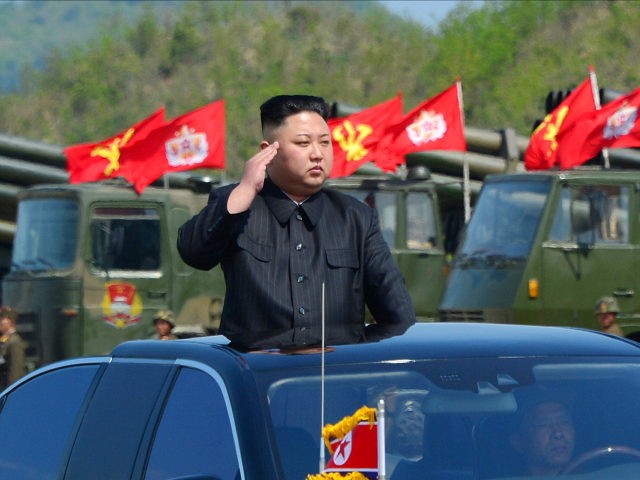Japan’s Nikkei Asian Review reported this week that North Korea’s chilly relations with its longtime patron China are due, in part, to a Chinese plan that would have eliminated North Korean dictator Kim Jong-un and replaced him with his half-brother Kim Jong-nam.
According to this account, the coup plot was neutralized when Kim Jong-un murdered his half-brother in Malaysia and executed his influential China-friendly uncle, Jang Song-thaek.
Outside observers have long speculated Jang was killed because he was Beijing’s man in Pyongyang. Nikkei Asian Review describes him as the “conduit” between North Korea and China, whose president was Hu Jintao at the time.
“According to three sources, Jang is said to have proposed a plot to oust Kim Jong-un and replace him with his elder half-brother Kim Jong-nam with China’s backing,” NAR reports. The proposal was made while Jang was visiting Beijing in August 2012. Unfortunately for the North Korean officer, he was under surveillance by Chinese intelligence during his visit.
Hu did not immediately accept this “dramatic proposal” because his right-hand man Ling Jihua was mixed up in a scandal involving his playboy son, who was killed when he crashed his Ferrari in Beijing. While Hu was getting his political ducks in a row, a top Chinese security official named Zhou Yongkang learned of Jang’s coup plan through a wiretap and secretly informed Kim Jong-un, as part of what appears to have been a power play by Zhou.
Kim Jong-un was not amused by the hot tip from Zhou, so Uncle Jang wound up on the business end of an anti-aircraft gun in 2013, while Kim Jong-nam got a face full of chemical weapons at the Kuala Lumpur airport last year.
President Hu and his allies were not pleased by this development, so Zhou Yongkang was quietly detained and ultimately sentenced to life in prison for corruption and “leaking state secrets.” His arrest was initially kept secret to conceal the coup plot against Kim.
Remarking upon the Nikkei Asian Review piece, author and North Korea expert Bradley Martin told the UK Telegraph that Jang was “a North Korean who was doing things differently” because he “appreciated the advances that were clear in the way China had modernized its economy and probably wanted the same for North Korea.” As Martin noted, that alone was enough to be charged with treason in Pyongyang, and being implicated in a coup plot would have been icing on the cake.
As for Kim Jong-nam, Martin noted the coup story would explain why Kim Jong-un abruptly decided to kill his seemingly harmless brother. China’s interest in Kim Jong-nam as a possible replacement dictator has long been seen as one of the few logical reasons for his murder.
According to NAR, Kim has never fully trusted China since the coup attempt was thwarted, and the Chinese are highly displeased by the execution of Jang Song-thaek. China is still formally allied with North Korea, and still protecting it to some extent, but Beijing’s willingness to support tougher sanctions at the United Nations, and issue a few public warnings to North Korea over the past month, are attributed in part to lingering resentments and China’s sense that it has lost influence in Pyongyang.
On the other hand, China’s anger is held in check by its enduring strategic interests, including fear of a North Korean refugee crisis if the Kim regime collapses or starts a shooting war with the United States, deep aversion to a unified Korean peninsula under Seoul’s administration, and Chinese business interests in North Korea.
Another intriguing theory advanced by one of Nikkei Asian Review’s sources is that North Korea stepped up its nuclear missile program because it wants to “speak to China on an equal footing, even if it cannot compete economically.”
The most bizarre permutation of the rift between Beijing and Pyongyang, in NAR’s estimation, could be North Korea seeking better relations with the United States to free itself from “dependence on China.” If this hypothesis is correct, it would mean North Korea’s recent provocative behavior—including threats to attack American civilians on Guam—was actually a psychotic form of diplomatic overture, an effort to get America’s attention so diplomatic talks could resume. That seems a bit far-fetched, but then again, North Korea is a very far-fetched place.

COMMENTS
Please let us know if you're having issues with commenting.